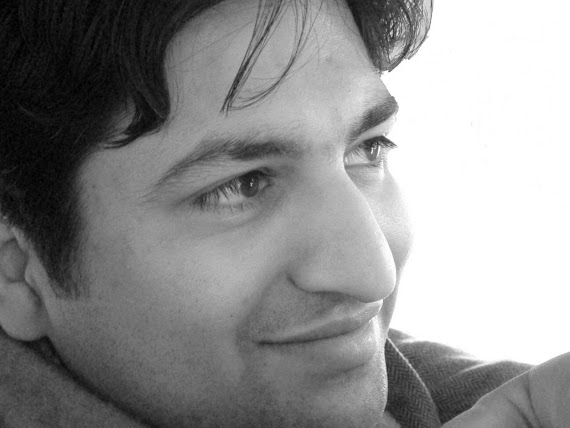
Freud and Freudianism
George Landson, Professor of English and History of Art, Brown University, and Robert Sullivan, Visiting Assistant Professor, Brown University
Freud's New Model of the MindThe radically new model of the human mind proposed by Sigmund Freud (1856-1939), the inventor of modern psychology and psychoanalysis, changed the way we all think about ourselves, our language, and our culture. Drawing upon both nineteenth-century science and nineteenth-century Romanticism, Freud created a description of the mind that emphasizes the major role played by unconscious drives, particularly those of sexuality. His theories, which struck many contemporaries as sordid and threatening, represents the most recent democratization or leveling of the old hierarchical conception of mind:
Classical through pre-Romantic:
reason [rules] will + passion
Romantic
reason + emotion will
Freud
reason + will + passion (or ego +superego + unconscious)
Freud himself believed that his theories had struck but the latest blow against human vanity, the first being Copernican cosmology, which had displaced humankind from the center of the astronomical universe, and the second, Darwinian evolutionary theory, which had removed it from the center of the biological universe. By proposing that humans had evolved from animal species, Darwinism denied the biological uniqueness of humankind and asserted that human beings were but one of many species of animals. Just as Darwin destroyed the basic opposition between human and animal by placing human beings within a biological continuum, Freud similarly destroyed the traditional basic opposition between sanity and madness by locating normality on a continuum. (Anthropologists, as Levi-Straus has shown, similarly replaced a traditional western opposition of civilized and primitive humanity with a conception of culture that places all social organizations upon or within continua.) What effects can you find of this progressive decentering of humankind in literature read in this course?
Freud's system originates in nineteenth-century biology and physics, particularly in Helmholtz's dynamic theory of energy that holds that energy cannot be destroyed but can only be transformed into other states. Drawing upon this notion of undestroyable energy, Freud formulated a dynamic psychology, one of whose key points is that whenever a psychic drive or urge is suppressed, repressed, or driven below (or out of) consciousness, its energy inevitably appears elsewhere. Freud proposed that the Id (the essentially biological element), the Ego (the socializing element), and the Superego (the dispenser of rewards and punishment) interact dynamically. (Put more idiomatically: The Id says, "I want it now!!"; The Ego says, "No wait, please. Accept this substitute" (sublimation); and the Superego judges either "Well done!" or "You shouldn't have done that. Now you will have to suffer guilt.") Their relative strengths in different people produce differences in personality.
George Landson, Professor of English and History of Art, Brown University, and Robert Sullivan, Visiting Assistant Professor, Brown University
Freud's New Model of the MindThe radically new model of the human mind proposed by Sigmund Freud (1856-1939), the inventor of modern psychology and psychoanalysis, changed the way we all think about ourselves, our language, and our culture. Drawing upon both nineteenth-century science and nineteenth-century Romanticism, Freud created a description of the mind that emphasizes the major role played by unconscious drives, particularly those of sexuality. His theories, which struck many contemporaries as sordid and threatening, represents the most recent democratization or leveling of the old hierarchical conception of mind:
Classical through pre-Romantic:
reason [rules] will + passion
Romantic
reason + emotion will
Freud
reason + will + passion (or ego +superego + unconscious)
Freud himself believed that his theories had struck but the latest blow against human vanity, the first being Copernican cosmology, which had displaced humankind from the center of the astronomical universe, and the second, Darwinian evolutionary theory, which had removed it from the center of the biological universe. By proposing that humans had evolved from animal species, Darwinism denied the biological uniqueness of humankind and asserted that human beings were but one of many species of animals. Just as Darwin destroyed the basic opposition between human and animal by placing human beings within a biological continuum, Freud similarly destroyed the traditional basic opposition between sanity and madness by locating normality on a continuum. (Anthropologists, as Levi-Straus has shown, similarly replaced a traditional western opposition of civilized and primitive humanity with a conception of culture that places all social organizations upon or within continua.) What effects can you find of this progressive decentering of humankind in literature read in this course?
Freud's system originates in nineteenth-century biology and physics, particularly in Helmholtz's dynamic theory of energy that holds that energy cannot be destroyed but can only be transformed into other states. Drawing upon this notion of undestroyable energy, Freud formulated a dynamic psychology, one of whose key points is that whenever a psychic drive or urge is suppressed, repressed, or driven below (or out of) consciousness, its energy inevitably appears elsewhere. Freud proposed that the Id (the essentially biological element), the Ego (the socializing element), and the Superego (the dispenser of rewards and punishment) interact dynamically. (Put more idiomatically: The Id says, "I want it now!!"; The Ego says, "No wait, please. Accept this substitute" (sublimation); and the Superego judges either "Well done!" or "You shouldn't have done that. Now you will have to suffer guilt.") Their relative strengths in different people produce differences in personality.


Aucun commentaire:
Enregistrer un commentaire